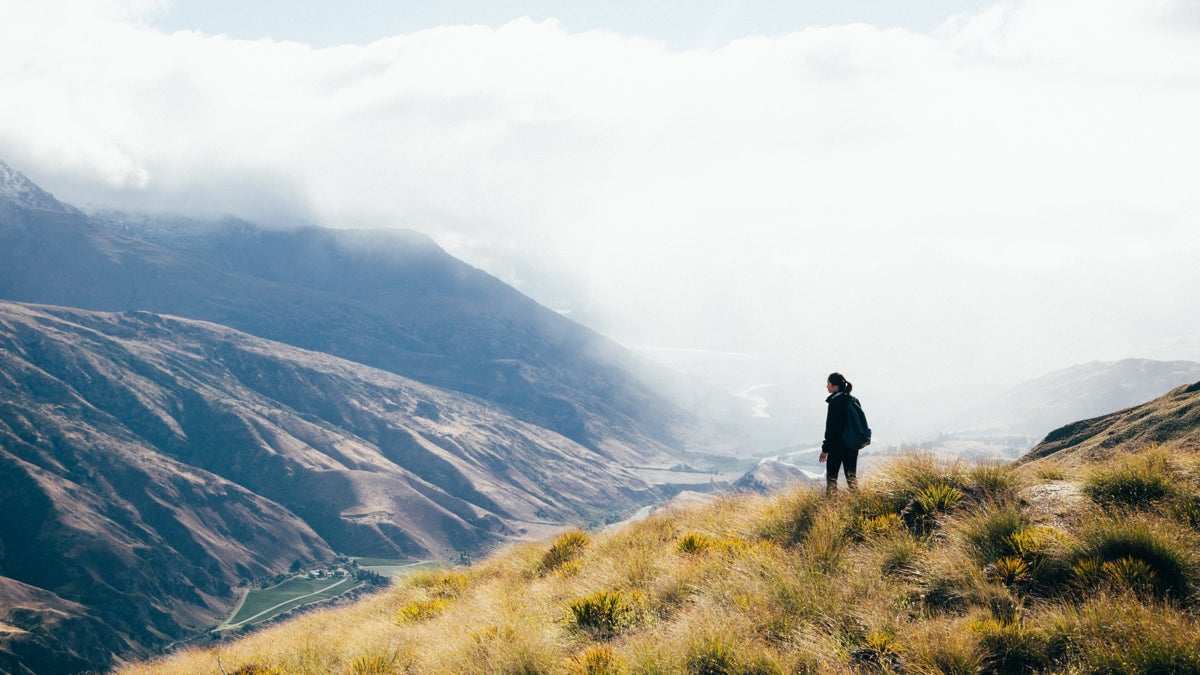No products in the cart.
Outdoor Adventure
I Don’t Trust My Body to Perform Outdoors, But I Want To
Welcome to Tough Love. We’re answering your questions about dating, breakups, and everything in between. Our advice giver is Blair Braverman, dogsled racer and author of Welcome to the Goddamn Ice Cube. Have a question of your own? Write to us at toughlove@outsideinc.com.
I’ve been on a sort of life-long quest to learn to love the body I’m in. While I’ve made a lot of progress, I think there’s still one main problem holding me back: I don’t trust my own body. I never have. As a kid, I never learned to ride a bike. I never climbed trees. I could never jump a fence, or run a mile without stopping, or do a handstand. I have never broken a bone because I’ve never taken risks. I am currently trying to become more physically active, especially outside, because it feels good, but I feel like my disconnection with my body is preventing me from really enjoying it and reaching my full potential. Any tips for how to connect with myself and become more physically aware/confident?
First off: you’re amazing. Learning to trust your body is a big step, and it’s something that’s definitely harder to do as an adult—but it’s also extremely rewarding, and it’s incredible that you’ve recognized what you need and are finding ways to pursue it.
Depending on the nature of your sense of disconnect with your body, you may find that therapy helps, as well as engaging in something physical and mindful—like yoga or meditation—as a regular practice. (You don’t have to be perfect at it, and in fact, “perfect” doesn’t exist in this context; the whole point is that you’re doing it.) You might also enjoy learning to trust your body in the same way that kids do, starting from scratch: through play.
The interesting thing about playful movement is that play often comes down to familiarity (or lack thereof). For little kids, almost all activities are unfamiliar, and so whatever they do—splash in water, somersault, pick dandelions—they do with the delight of discovery. For adults, that same delight can come from engaging in unusual movement, like roller skating, sledding, or whitewater rafting: it’s not uncommon to hear someone say, after trying something new, “I feel like a kid!” The great news for you is that a lot of things are going to feel unfamiliar, so you almost get to be like a kid yourself—encountering the world in new ways, finding the boundary between the familiar and surprising, gaining trust in yourself as you toe the line.
What does play look like to you? What are activities that seem cool when other people do them, but you haven’t ever imagined being able to try yourself? What seems genuinely fun?
You might make a list of physical activities that seem fun or intriguing, then go through and try them at an introductory level, one by one. Think of it like dating, but for physical movement and sensations. What about floating around in a pool? Wading at a beach or river? Going to an orchard, picking an apple from a tree, and eating it right then and there? Taking a beginner’s class in dance or martial arts? There are plenty of people who learn to ride bikes as adults—if you want to, you can be one of them! Be sure to include some gentler things on the list, too. Activities like using a sauna and getting a massage are also physical, and can help you feel connected to your body, even if they’re not as technically challenging.
Kids tend to fall down a lot—and in doing so, they learn that falling down is OK, even necessary. To learn the limits of your balance, your strength, you sometimes have to push past them a bit. Of course, adult bodies can be less resilient, and falling hurts more when we have farther to fall. If you seek out activities where you can fall without hurting yourself—paddleboarding on water, say—it could help you build your balance and confidence and get over the natural fear of losing control. (This is also where a coach or teacher could make a huge difference in your journey. Many coaches take special joy in working with adult beginners, even total beginners, and would love to help you connect with the physicality of your body. A good coach can teach you to move and fall safely, and they’ll be there each step of the way to reassure you, guide you, and cheer on your success.)
You’ll almost certainly end up with some weird aches and pains that you’re not used to, and that’s another thing you’ll learn as you use your body more: that aches and pains aren’t necessarily bad, and you can respond to them in ways that feel genuinely good, like taking an epsom salt bath the day after a hike. Tending to your body is tending to yourself—and the more you gain confidence in movement, and in rest and recovery, the more you’ll feel nourished and whole.
Source link

